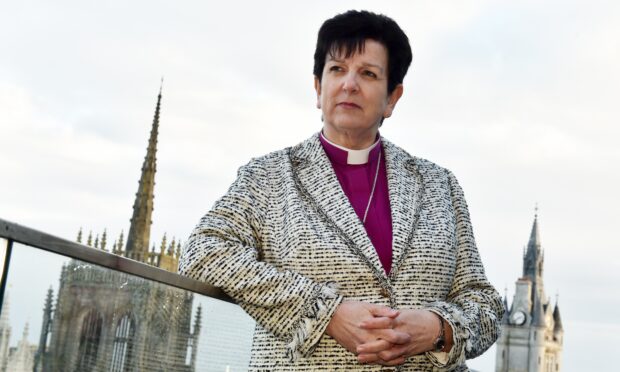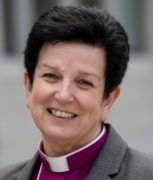Words matter very much. They have the power to build people up, and the power to pull them down. Words must be chosen carefully.
When I was a child in school or in the playground, and someone said something mean, or used words to exclude someone else and make them feel bad, then parents and teachers would say: “sticks and stones may break your bones, but words can never hurt you”. As an adult I know that this is not true.
Words have the potential to hurt other people very much. Words are used to describe people in such a way that they are seen differently. When someone is different, then words can be used to describe people in ways that make them less than the rest, the majority. Once someone is thought of as less, then the possibility of harmful actions follow.
Choosing our words carefully is not easy. Generally we speak quickly, without a great deal of thought. We tend to use words in the ways that we have received them. But those who speak for a living, or as part of their professional life, know that this is not good enough. Great care needs to be taken with words.
We are living through a season in the UK where words have become weapons. As the divisions between us widen, then words are used to diminish others on a daily basis. We see this in political speech, in the TV news, and in newspaper headlines. When speech becomes careless, damage, and sometimes violence, follows.
Some might say, well these are only words. But when, for example, someone is told to ‘go back home’ then these words are heard differently if the speaker seems racially motivated and aggressive, and the hearer has heard the words used many times to mean ‘you are not welcome here’.
To take another example, is to common to hear grown women referred to as ‘girls’. I regularly hear groups of women referred to in this way. When I am a part of such a group of ‘girls’ I wonder what is being said. In what way am I, a mature woman in my sixties, a ‘girl’?
One of the things about not being a girl but a grown up is that I have had to learn to choose my words. I have learnt by making mistakes and having to hear from others to take more care. Such learning is not easy but essential.
We all have to learn that although we might not mean to harm others by our choice of words, how we speak, particularly if we are people who carry some authority in society, has consequences. If we allow a bad or destructive attitude to be encouraged, we might not be the ones to act it out, but someone else might. So what can begin as a joke, can become a common viewpoint, then a violent action, without us intending this at all.
In our careful choice of words we are not first speakers but listeners. We have to listen to how words are heard by others, as especially by those who are different from ourselves. A person’s history, the context they grew up in, their skin colour, their gender, a disability, can cause words to be heard differently than they might be meant. As we learn we discover the words that can build others up, not pull them down or make them feel unsafe.
I belong to a church that uses the same words week after week to give shape to our services. Our words have a pattern. Whenever I am in church leading worship, the first words that I say are the same: ‘grace and peace’. I speak these words in a religious context, as a person of faith, and they are heard by others who receive them in the same way. But ‘grace and peace’ are not just religious words.
‘Grace’ is a word that means goodness and benevolence, and ‘peace’ describes situations where there is well-being for all, where there is no fear or anxiety.
‘Grace and peace’ are words that can build people up, and point us all towards a society where everyone is fully included, and all people thrive.
I am pleased that I get to speak these words day after day in so many different places. The words I speak, as well as the words I hear, matter very much. I speak these words in such a way that I try to live them: I try to be good and to bring peace.
We will all speak and hear many, many words today, but let’s hope that most of these are positive and uplifting.
So “grace” and “peace” to you today.
The Rt Rev Anne Dyer is Episcopalian Bishop of Aberdeen and Orkney and Scotland’s first female bishop

